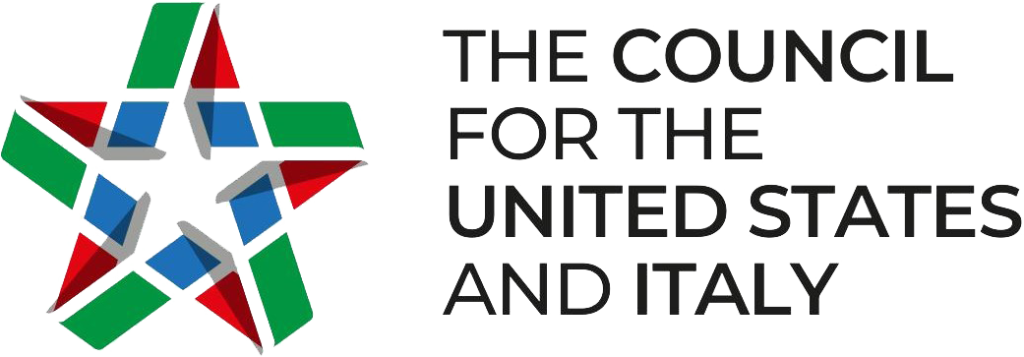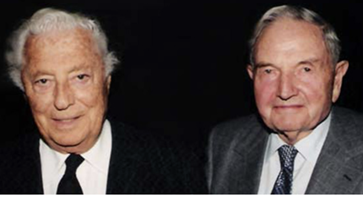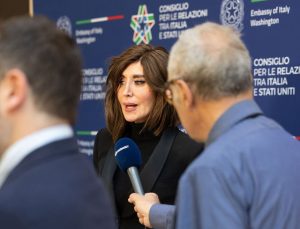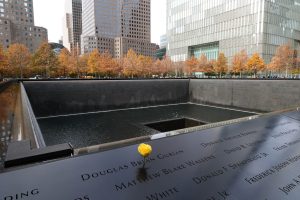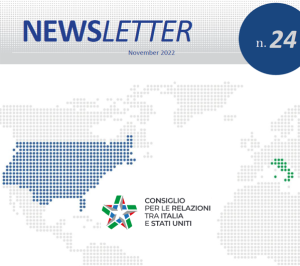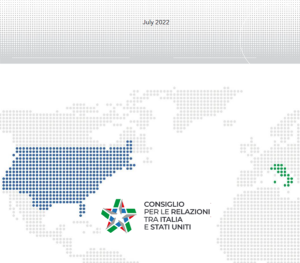[vc_row][vc_column][vc_column_text]The origins of the Council
The original idea of establishing a private venue for meetings between the United States and Italy, similarly to those existing with Germany, France and England, was proposed to the Istituto Affari Internazionali in Rome in the early 1980s by a former American diplomat, who had served in the embassy of Via Veneto and was currently at Harvard University. At that time, I was president of IAI and I brought the proposal to Gianni Agnelli, who not only encouraged the initiative but also assured its support. Thanks to this encouragement, a Board was formed on both sides of the Atlantic, made up of Italians and Americans, representatives of industrial, financial and professional companies together with personalities from the cultural world and the media.
The inaugural meeting was held at Palazzo Labia in Venice in September 1983, with the participation of the painter Frank Stella and the writer Umberto Eco. The first Italian co-president was Carlo De Benedetti, followed by Umberto Nordio, Marco Tronchetti Provera, Sergio Marchionne, up to the current Domenico Siniscalco. Shortly after the beginning of the activities, Gianni Agnelli and David Rockefeller assumed the honorary presidency.
As stated in the Mission Statement, the Council’s purpose was to promote the relations between Italy and the United States in the broader context of those between Europe and America. Specific tasks would be to: 1) broaden and strengthen the ties between business and financial leaders; 2) improve the sharing of information and insights into the political and economic situation of the two countries for the benefit of the other’s ruling class; 3) provide a forum to analyze and discuss economic and political issues with a European, Atlantic and global dimension.
It was in this spirit that, under the stimulus of Gianni Agnelli, the meetings of the Board, held in spring on the shores of Lake Como and at the Venice lagoon while in autumn among the skyscrapers of New York or the neoclassical architecture of Washington, were open not only to the participation of the elites of the two countries, including significant political figures, but also to representatives of international institutions and major European and global partners, such as Japan, Russia or China.
Here are some of the speakers who contributed to the meetings: Secretary of State James Baker, National Security Advisor Zbigniew Brzezinski, the current Italian Prime Minister Mario Draghi, German Foreign Minister Josckha Fischer, Federal Reserve Chairman Alan Greenspan, Secretary of State Henry Kissinger, La Stampa editor Arrigo Levi, former Italian Prime Minister Mario Monti, Japanese diplomat Sadako Ogata, former Italian Minister Tommaso Padoa Schioppa, the director of Tg1 Gianni Riotta, Chancellor Helmut Schmidt, philanthropist George Soros, former President of the European Parliament Simone Veil, Governor of Banca d’Italia Ignazio Visco, former President of US Central Bank Paul Volcker and the 46th President of the US Joe Biden, who joined our Workshop in Venice a few months before Barack Obama’s electoral victory that would have led him to the vice-presidency.
Since the beginning, the Council embarked on its other main activity: Young Leaders Conferences. They are meetings of emerging young Italian and American leaders up to 38 years of age, later joined by their peers from other areas, chosen in relation to the topics covered. Many of the now more than a thousand young leaders who participated in the conferences, which alternated annually between Italy and the United States, went on to become leaders as they grew older, rising to top positions in business, finance, academia, media and politics. The first two meetings took place at Yale University, New Haven, Connecticut, in 1984, and in Turin, in 1985. During the second meeting, the participants joined a long post-dinner conversation with Gianni Agnelli, on a hill beyond the Po River.
Cesare Merlini[/vc_column_text][/vc_column][/vc_row][vc_row][vc_column][vc_btn title=” L’Avvocato 100 years after” color=”primary” size=”lg” link=”url:https%3A%2F%2Fconsiusa.org%2Fen%2Fevent%2Fthe-legacy-of-gianni-agnelli-in-the-21st-century-2%2F|||”][/vc_column][/vc_row]
